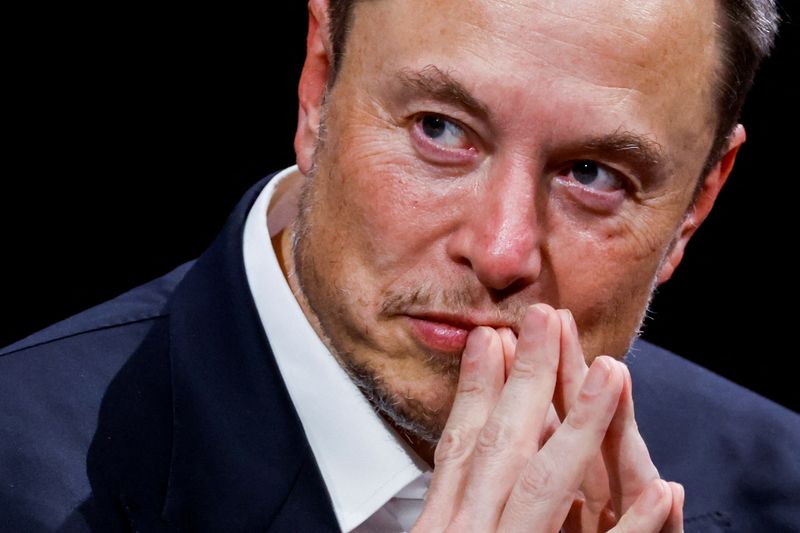Investing.com -Tesla is projected to spend between $3 billion and $4 billion on hardware from chipmaker Nvidia this year, according to CEO Elon Musk. He revealed this in a recent post on social media platform X.
Musk also disclosed that approximately half of Tesla's $10 billion capital expenditure on artificial intelligence (AI) this year would be directed towards internal spending.
"For building the AI training superclusters, NVidia (sic) hardware is about 2/3 of the cost," he said on X.
Earlier on Tuesday, Elon Musk reportedly redirected thousands of AI chips, initially intended for Tesla Inc (NASDAQ:TSLA), to his social media company, X.
The chips, manufactured by NVIDIA Corporation (NASDAQ:NVDA), were to help Tesla evolve into a leader in AI and robotics. However, the unexpected diversion could potentially delay Tesla's acquisition of processors worth $500 million.
Earlier this year, Musk announced in a Tesla earnings call that the company planned to increase its procurement of Nvidia’s H100 artificial intelligence chips from 35,000 to 85,000 by year-end. He also revealed that Tesla intended to invest $10 billion in combined training and inference AI, primarily for in-car applications.
However, recently obtained emails from Nvidia employees suggest that Musk may have overstated the AI chip purchases for Tesla. Instead, a significant number of these processors are now being shipped to X, mainly its AI subsidiary, xAI.
In response to the report, Musk posted on X that Tesla lacked the capacity to accept the Nvidia GPUs due to the incomplete state of its factory in Austin, Texas. He also estimated that Tesla would spend $3-4 billion on AI chips from Nvidia in 2024.
This move could potentially upset Tesla investors, who are banking on Musk's promise of delivering fully autonomous vehicles. The company plans to unveil its first robotaxi vehicle in August, while its Autopilot and Full Self-Driving driver-assist features continue to be scrutinized due to a string of crashes.
Meanwhile, xAI, Musk's AI startup, is competing against the likes of OpenAI and Google (NASDAQ:GOOGL) to create practical applications for generative AI and their underlying large language models. Last month, the company announced a $6 billion funding round based on the promise of advanced products and the infrastructure to support them.
